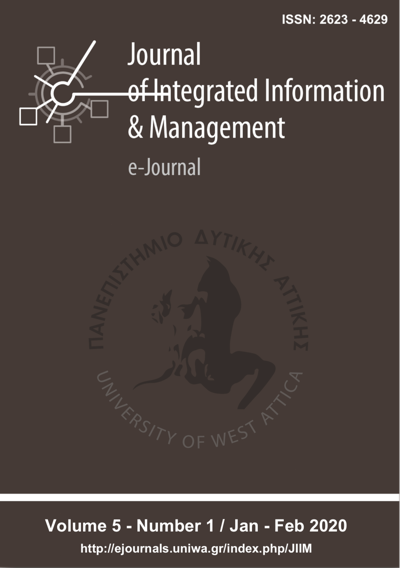Editorial

Abstract
The first paper examines the application of the European General Data Protection Regulation (GDPR) to Greek companies. The research investigates the positive and negative impact of the implementation of the Regulations, 18 months after the new legislation went active, regarding technological, organizational and legal issues. Most importantly this paper highlights the significant role of the Data Protection Officer (DPO). The following paper presents the PLUS information literacy model implementation in the context of a prison library, with the aim of helping second chance school learners to prepare a presentation on racism. The development of work plans in an informational organization environment, inspired by microteaching, can serve as a good example for promoting the application of informational models to their operation and services, as well as a pilot for the application of a work plan by educators and information scientists. In the next paper readers will be informed of how an object can be examined by using S. Pearce’s model for studying objects. Moreover, they will discover that the aforementioned model is a foundation stone in the study of material culture that enables any object to be perceived through a broader and more interesting feel for its inherent meaning, instead of exclusively through its narrow morphological sense. The last paper discusses a new topic concerning the extension domain of subject - matter protected by patents, trademarks and copyright law regarding computer icons and graphical user interface. The extensive view of protectable subject - matter via intellectual property has blurred the clear delineation between patent, copyright, and trademark law, thus readers will be informed why it should only occur if it does not subvert the balance of intellectual property law per se.
Article Details
- How to Cite
-
Kouis, D. (2024). Editorial. Journal of Integrated Information Management, 5(1), 5. Retrieved from https://ejournals.epublishing.ekt.gr/index.php/jiim/article/view/37876
- Section
- Editorial

This work is licensed under a Creative Commons Attribution-NonCommercial 4.0 International License.
Copyright Notice
Authors who publish with JIIM agree to the following terms:
- Authors retain copyright and grant the journal right of first publication with the work simultaneously licensed under a Creative Commons Attribution Non-Commercial License that allows others to share the work with:
- An acknowledgment of the work's authorship and initial publication in this journal.
- Authors are permitted and encouraged to post their work online (preferably in institutional repositories or on their website) prior to and during the submission process, as it can lead to productive exchanges, as well as earlier and greater citation of published work.





